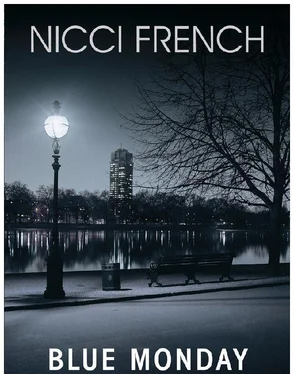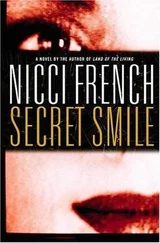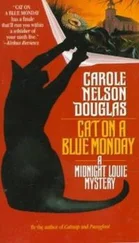It sounded so grave. Alan had just wanted Dr Foley to give him different medicine, to make it all go away, like a stain that could be wiped clean, leaving no trace. He put his hand against his heart, feeling its painful bump. He just wanted to be an ordinary man with an ordinary life.
There is a place where you can see and not be seen, an eye pressed to a small hole in the fence. It’s playtime and they spill out from their classrooms and run across the yard. Boys and girls, all shapes and sizes. Black and brown and pink, with blond hair and dark hair and the shades in between. Some are almost full-grown, spotty boys with clumsy feet and girls with breasts just budding under their thick winter clothes, and they won’t do at all. But some are tiny; they hardly look big enough to be away from their mothers, with their stringy legs and baby voices. They’re the ones to watch.
It’s drizzling in the schoolyard and there are puddles on the ground. Just a few feet away, a little boy with a buzz-cut jumps into one violently, and a grin splits his face at the splashing. A girl with straw hair in high pigtails and thick glasses that are misted over stands in the corner and watches the crowd. She puts her thumb in her mouth. Two miniature Asian girls hold hands. A squat white boy kicks a skinny black boy and runs away. A group of girls whisper nasty things to each other, snigger, look sideways out of their dangerous eyes.
But they are all just a moving crowd. No one stands out. Not yet. Keep watching.
At two o’clock in the afternoon, Frieda left the room that she rented on the third floor of a mansion block and walked to her house, which was only seven minutes away along back roads that hid behind the arterial routes of the city. Just a few hundred yards away was Oxford Street, with its jostle and noise, but here it was deserted. The muted November light made everything seem grey and still, like a pencil drawing. Past the electrical shop where she bought her light bulbs and fuses, past the twenty-four-hour newsagents, the dimly lit grocers, the low-rise flats.
Frieda didn’t pause until she reached her house, where she felt the same sense of relief that she always had when coming home, closing the door against the world outside, breathing in the smell of cleanliness and safety. From the moment she had seen it, three years ago, she had known she had to have it, even though it had been neglected for years and had seemed shoddy and misplaced, squeezed between the ugly lock-ups on its left and the council flats on its right. Now, after the work had been done on it, everything was in its place. If she closed her eyes, she would still be able to find each object, even the sharpened pencils on her desk. Here in the hall, the large map of London and the hooks where her belted trench coat hung. Here in the living room, whose window gave out on to the street, the thick-pile rug over the bare boards, the squashy chair and deep sofa on either side of the open fire that she lit each evening, from October through until March. Near the window a chess table, the only item of furniture she had ever inherited. The house was narrow, the width of a single room. Its stairs went steeply up to the first floor, where there was a bedroom and a bathroom, and then even more steeply up to the top floor, which consisted only of her study, with a sloping roof and her desk near the skylight, on which she kept all her drawing things. Reuben called her home her den, or even her lair (with her as its dragon, keeping people out). It was true that it was dark in here. Lots of people knocked through walls, enlarged windows, let in air and light; Frieda preferred snug, enclosed spaces. She had painted the walls in deep colours, matt reds and bottle greens, so that even in summer the house felt dim, as if it was half underground.
She picked the letters up from the doormat and put them on the kitchen table without even glancing at them. She never opened her mail in the middle of the day. Sometimes she forgot about it for a week or more until people rang to complain. Nor did she check her answering-machine messages. In fact, it had only been in the last year that she had finally bought an answering machine and she steadfastly refused to have a mobile, to the incredulity of all those around her, who didn’t believe that people could actually function without one. But Frieda wanted to be able to escape from incessant communications and demands. She didn’t want to be at anyone’s beck and call, and she liked cutting herself off from the urgent inanities of the world. When she was on her own, she liked to be truly alone. Out of contact and adrift.
She had thirty minutes before her next patient. Often she had lunch at her friends’ café in Beech Street, Number 9, but not today. She made herself a quick lunch: toast and Marmite, a few small tomatoes, a cup of tea, an oat biscuit and an apple that she quartered and cored. She took the plate through to the living room and sat in the chair by the fire that she had already laid ready for later. She closed her eyes for a moment and let her tiredness settle inside her, then ate her toast slowly.
The phone rang. At first she didn’t answer it, but she didn’t have the answering machine turned on, and whoever was on the other end didn’t give up. Finally she picked up.
‘Frieda. It’s Paz. Is everything all right? Were you in the bath?’
Frieda sighed. Paz was the administrator at the Warehouse, which wasn’t a warehouse at all. It was a clinic that had relocated to an old warehouse and taken a name that had sounded cutting edge in the early eighties. Frieda had trained there, then worked there and now was on the board. When Paz called her at home, it wasn’t to deliver good news.
‘No, I wasn’t in the bath. It’s the middle of the day.’
‘I’d have a bath in the middle of the day if I was at home. Especially on a Monday. I hate Mondays, don’t you?’
‘Not really.’
‘Everyone hates Mondays. It’s the low point of the week. When the alarm clock goes off on Monday morning and it’s still dark outside, and you know you have to haul yourself out of bed and begin all over again.’
‘Did you really ring me to talk about how you hate Mondays?’
‘Of course not. I wish you’d get yourself a mobile.’
‘I don’t want a mobile.’
‘You’re a dinosaur. Are you coming in on Thursday?’
‘I’m meeting Jack.’ She was supervising Jack’s therapy training.
‘Could you come in a bit earlier?’ said Paz. ‘We’d like some input.’
‘I can give you input over the phone. What’s it about?’
‘Better face to face,’ said Paz.
‘It’s Reuben, isn’t it?’
‘Just a little talk. And you and Reuben…’ Her sentence trailed away, leaving a whole history unspoken.
Frieda bit her lip, imagining what was going on. ‘What time do you want me?’
‘Can you come at two?’
‘I’ve a patient until two. I can get there for two thirty. Will that do?’
‘Perfect.’
She returned to her toast, which was cold now. She didn’t want to think about the clinic, or about Reuben. Her job was to deal with the mess and pain inside other people’s heads, but not his mess and not his pain. He was out of bounds.
Joe Franklin was her final patient of the day. For the last sixteen months, he had been coming to see her on a Tuesday afternoon, at ten minutes past five – although sometimes he didn’t make it, or came just as his time was up. Frieda would wait without irritation, catching up with her notes or doodling on her pad of paper. She never left before all of his fifty minutes had gone by. She knew that she was the one reliable point of his tumbling, kaleidoscopic week. Once he had told her that it was the thought of her sitting slender and straight-backed in her large red armchair that kept him going, even if he couldn’t get to her.
Читать дальше












